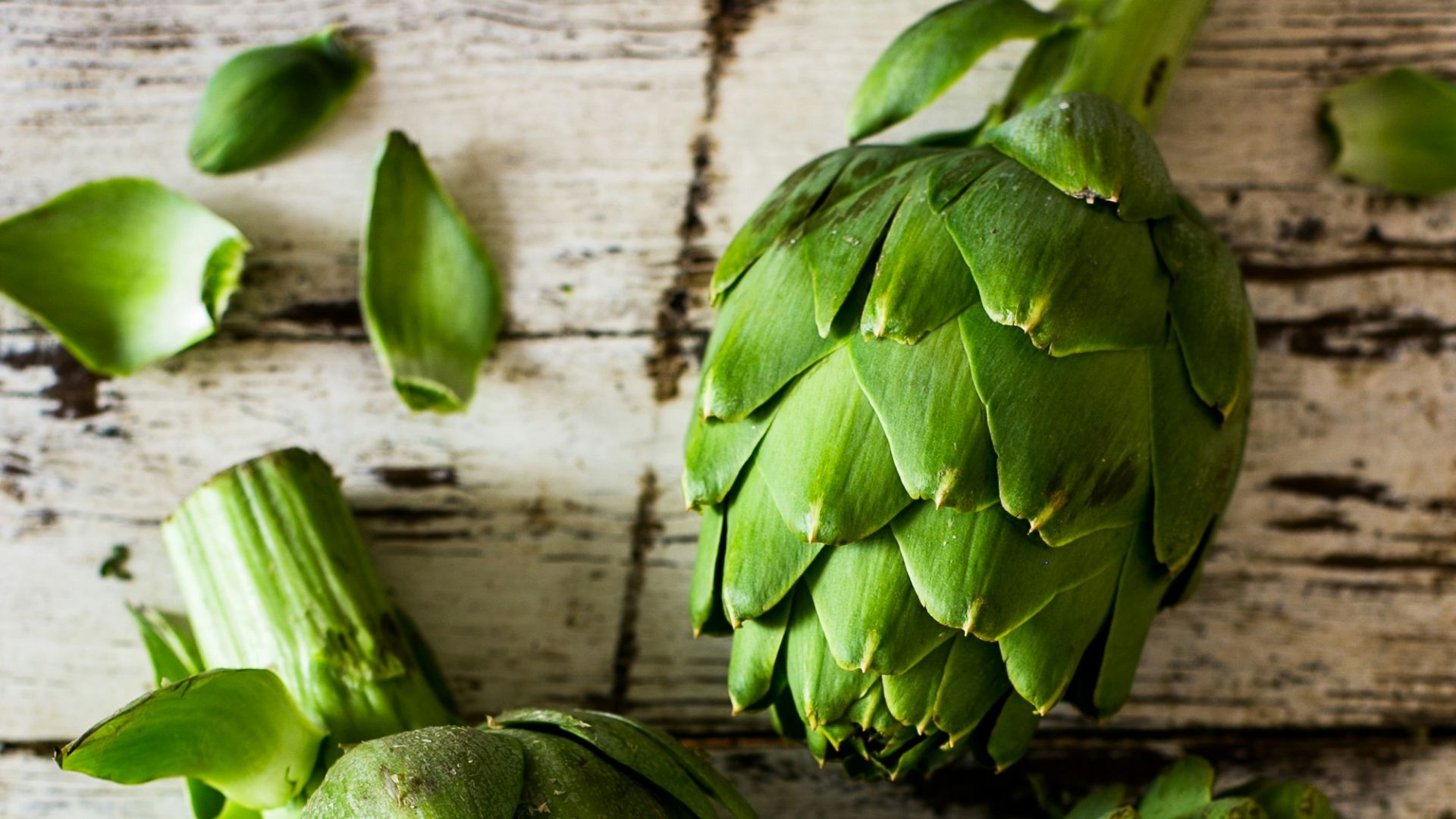Get Those Gains: 20 Veggies High In Protein For Muscle Growth
Plant Gains Beyond Meat
If you’ve been chasing protein shakes and chicken breasts, it’s time to broaden your plate. Go green. Some veggies pack surprising protein power and bonus nutrients that fuel real strength. This lineup proves that building muscle doesn’t require meat—just smarter choices. Ready for a safer, cleaner, more affordable way to get your proteins? Try these 20 (mostly) green protein sources.
1. Edamame
Ever wonder what those green pods at sushi restaurants actually are? The Japanese have been onto something big with edamame. These young soybeans pack more muscle-building protein than any other veggie. Pop them from their pods after a light steam, and your muscles will thank you.
 Tammy Green (aka Zesmerelda) on Wikimedia
Tammy Green (aka Zesmerelda) on Wikimedia
2. Green Peas
Green peas are a solid plant-based protein, especially when paired with complementary foods like grains, to create a complete amino acid profile for muscle growth. They support nitrogen balance in the body, which is important for maintaining and building lean mass. Frozen peas retain most of their protein content.
3. Spinach
This dark leafy green becomes a protein powerhouse when cooked, as the volume reduces while nutrients concentrate. Rich in iron that helps carry oxygen to your muscles during intense workouts, spinach deserves its legendary status. The item’s versatility shines through in smoothies and sautés.
4. Artichokes
Did you know you're actually eating an immature flower when you enjoy an artichoke? A surprising amount of muscle-supporting protein is placed inside those layered petals. The heart at the center contains the highest concentration of beneficial compounds. So, artichokes deliver much more than a unique flavor.
5. Collard Greens
Collard greens offer calcium alongside their protein, supporting muscle growth and the bone strength needed to handle heavier weights. Their amino acid profile provides building blocks for new muscle tissue. Serious athletes incorporate collards for their vitamin K content, which is essential for bone health.
6. Asparagus
Ancient Romans highly valued asparagus, with historical texts suggesting it was a prized vegetable. Asparagus contains asparagine, which may act as a diuretic to reduce water retention and bloating, aiding appearance during cutting phases. One cup (about 134 grams) of raw asparagus provides approximately 3 grams of protein.
7. Brussels Sprouts
Well, the protein in Brussels sprouts comes with a powerful dose of vitamin C, needed for collagen production that keeps joints healthy during heavy lifting phases. Roasting Brussels sprouts reduces water content, making their protein and nutrients appear more concentrated per serving.
8. Broccoli
Those little trees on your plate deserve more respect than they often get. Broccoli not only contains protein but also contains indole-3-carbinol, which may support hormone balance. It also provides sulforaphane, which can help reduce inflammation and support overall muscle health.
9. Mustard Greens
With Mustard greens, you get a powerful combination of muscle-supporting protein and calcium that strengthens the skeletal system. The distinctive peppery kick signals the presence of compounds that offer antioxidant benefits. According to Healthline, mustard greens provide around 2.9g/100g of protein.
10. Watercress
Watercress provides a high protein-to-calorie ratio (~0.21g protein per calorie), making it one of the more efficient plant foods for protein delivery. This aquatic plant also aids the body's natural antioxidant systems. Protein accounts for a very high percentage of its calories, about 84%.
11. Sweet Corn
People incorporate sweet corn into their post-workout meals for its unique combination of fast-digesting carbs and muscle-supporting protein. Compared to starchy vegetables, corn serves a good amino acid profile. The natural sugars present tend to replenish glycogen stores that get depleted during intense training.
 Wouter Supardi Salari on Unsplash
Wouter Supardi Salari on Unsplash
12. Red Potatoes
Working out without adequate carbohydrates severely limits protein synthesis and muscle growth. But you have red potatoes to the rescue. They contain lysine and leucine, which are needed for muscle tissue development and repair. The skin itself contains the highest concentration of protein.
13. Mushrooms
Interestingly, these yummy veggies provide usable protein (~3g/100g), contributing to muscle repair. Mushrooms tend to deliver antioxidants that help reduce post-workout inflammation while delivering usable protein. During cutting phases, some folks often substitute mushrooms to reduce calorie intake.
14. Kale
Each serving provides a rich source of amino acids alongside calcium and iron. These minerals are integral for muscle contraction and oxygen delivery during training. Strength athletes value kale for its magnesium content as well, as it can prevent muscle cramps. Steaming kale briefly makes its protein more bioavailable.
15. Pinto Beans
Pinto beans are packed with slow-digesting proteins that give you a steady stream of essential amino acids. For those following plant-based diets, these are one of the best options. When paired with rice, pinto beans create a complete protein combo while also supporting your gut health.
16. Alfalfa Sprouts
Athletes looking to maximize their nutrient-to-calorie ratio gravitate toward alfalfa sprouts for their decent protein quality (~4g/100g) and micronutrient density. Protein makes up about 52–69% of the total calories in alfalfa sprouts. Additionally, these are low in calories but rich in fiber.
17. Green Beans
Fitness competitors usually rely on green beans during cutting phases because they deliver quality protein with minimal impact on blood sugar levels. Their fiber content slows the digestion of their protein component. This causes a steady amino acid release that aids muscle preservation during calorie restriction.
18. Black Beans
Intense resistance training forms micro-tears in muscle tissue that require specific amino acids. These are found abundantly in black beans for proper repair and growth. The proteins in black beans also come with a huge dose of anthocyanins—antioxidants that help neutralize free radicals produced during challenging workouts.
19. Cauliflower
When carbohydrates are restricted in your diet, cauliflower provides important protein without disrupting the metabolic state needed for fat loss while preserving muscle. Riced cauliflower is a great option as a base for protein-packed meals without piling on too many carbs.
20. Lima Beans
Lima beans are a rich plant-based source of protein. A typical serving of one cup (about 170 grams) of cooked lima beans provides approximately 12 grams of protein and around 209 calories. They contain complex carbohydrates, providing sustained energy for workouts and muscle-building.
KEEP ON READING


























